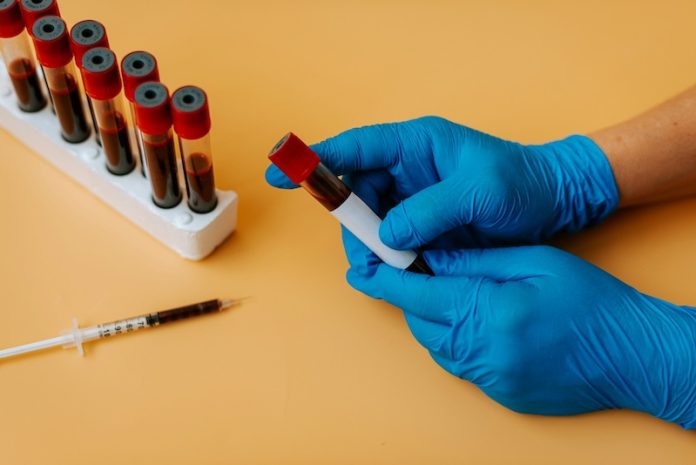
Scientists from Boston University and other institutions have identified a blood biomarker that could help detect the earliest signs of dementia, even before any symptoms appear.
This breakthrough study, led by Emer McGrath and colleagues, was published in the Journal of Alzheimer’s Disease and has the potential to transform how dementia is diagnosed and managed.
The research focused on a blood marker called P-tau181, which is linked to neurodegeneration. The study analyzed blood samples from 52 cognitively healthy adults who were participants in the Framingham Heart Study, a long-term research project in the United States.
At the time of testing, these individuals showed no memory problems or other signs of cognitive decline.
Researchers found that elevated levels of P-tau181 in the blood were strongly associated with higher levels of ß-amyloid, an abnormal protein that is a hallmark of Alzheimer’s disease.
This protein buildup was observed through specialized brain scans conducted, on average, seven years after the blood samples were taken.
In further analyses, P-tau181 outperformed two other biomarkers in predicting the presence of ß-amyloid on brain scans. This suggests that P-tau181 could serve as a more reliable indicator of early brain changes associated with Alzheimer’s disease.
This discovery offers hope for identifying individuals at high risk of developing dementia long before noticeable symptoms such as memory loss or behavioral changes occur.
A simple blood test measuring P-tau181 levels could one day be used as a routine screening tool, potentially allowing doctors to predict dementia risk in middle-aged and older adults—or even earlier in life.
The implications of this research are significant. Early identification of at-risk individuals could open the door to interventions during the very early stages of dementia, when it might still be possible to slow or prevent disease progression.
This could include lifestyle changes, targeted therapies, or participation in clinical trials for new treatments.
Moreover, this biomarker could revolutionize how clinical trials for dementia therapies are conducted. By using P-tau181 to identify participants who are in the earliest stages of the disease, researchers could focus their efforts on those who are most likely to benefit from experimental treatments.
This approach could accelerate the development of effective therapies for Alzheimer’s and related conditions.
While more studies are needed to confirm these findings and refine the use of P-tau181 as a diagnostic tool, this research marks a significant step forward.
The potential for a simple, widely accessible blood test to predict dementia risk could change the way we approach this devastating disease, giving individuals and families more time to plan and explore preventive options.
If you care about brain health, please read studies about inflammation that may actually slow down cognitive decline in older people, and low vitamin D may speed up cognitive decline.
For more information about brain health, please see recent studies about common exercises that could protect against cognitive decline, and results showing that this MIND diet may protect your cognitive function, prevent dementia.
Copyright © 2024 Knowridge Science Report. All rights reserved.



